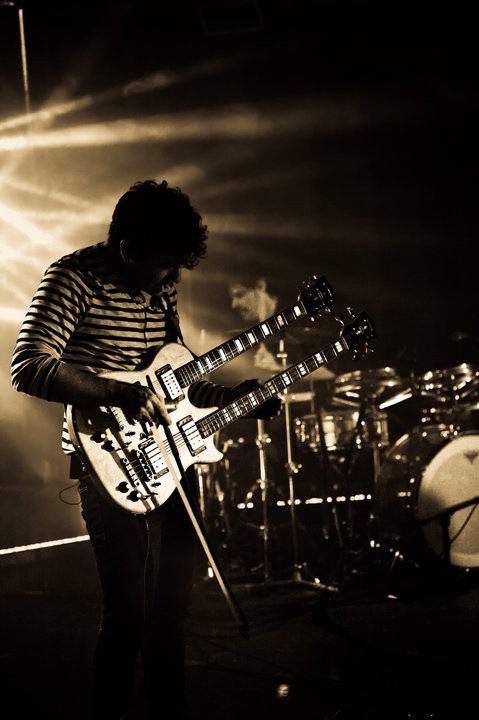When one thinks of modern instrumental music, one’s mind wanders to the sprawling expanse of ambient rock or dreamy textures that are ideal for studying. It’s a genre that’s also defined by a troupe of musicians that help make up that ethereal sound.
But El Ten Eleven is made up of just two guys — yes, only two guys — who are doing just that.
Don’t mistake El Ten Eleven with whatever post-rock band you listen to. In fact, don’t call El Ten Eleven post-rock at all.
“[Post-rock is] just a generic banner that people can throw over it, but it’s weird to us because we don’t listen to post-rock — we don’t like post-rock,” guitarist/bassist Kristian Dunn said. “The first couple records, there are some elements in there that could be post-rock, but generally speaking, how can you call us a post-rock band? There’s not an element of that in there now, at all.”
Then what banner does El Ten Eleven fall under? It’s hard to define, but that’s a great thing for the band. Hailing from both Los Angeles and San Diego, El Ten Eleven has developed a sound that’s likely all its own, relying on looping pedals and a hell of a lot of musicianship to create what’s one of the most intricate acts inside and outside the studio.
El Ten Eleven isn’t just an indie act in the traditional sense. Put on any of its records, most notably its latest offering, Transitions, and you’ll hear the perfect party soundtrack if you’re not part of the Nicki Minaj-loving crowd. Dunn and Tim Fogarty are alternative in the best way, and it’s their willingness to delve into off-the-wall influences that suits the evolution of their sound best.
“It’s wherever our heads are at the time,” Dunn explained. “On These Promises Are Being Videotaped, we were really into dance music when it was a little bit more underground, and we were just obsessed with it,” Dunn says. “Instead of doing it on laptops, we did it with bass and drums.”
It’s that kind of deviation from the norm that’s allowed El Ten Eleven to carve its own niche during the past ten years. From Dunn’s double-neck guitar tonality to Fogarty’s acoustic drums and electronic trigger pads, combined with its high-energy live shows, it’s easy to see why El Ten Eleven has garnered such a cult following. Though the band is well outside of the indie realm, Dunn said she feels that its influence should push musicians to move in a different creative direction.
“What impresses us is when we hear somebody doing something new, which is really rare, and also having it be good,” Dunn said. “It’s really tough.”
While El Ten Eleven has a mesmerizing ability to spin a massive sound with limited resources, the fact remains that Dunn and Fogarty want their listeners to remember that their music should be put in front of the fact that they’re just two musicians — though very talented musicians at that.
“We want people to follow the music because it’s good music, not because of the novelty that there’s two people doing it,” Dunn said. “We really want to make sure we’re not just a novelty act.”
Follow us on Twitter @wildcatarts and follow K.C. @KristianCLibman.









